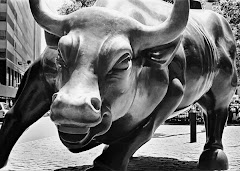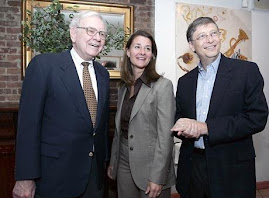Been active in the stock market for more than 10 years, I had witnessed Ms Market’s illogically behaviour frequently. Sometime, you will find her dumping a stock and depressed its price for no apparent reason. You search through the website and company’s announcement but you just can’t find anything. And sometimes a stock’s price will skyrocket also without any sensible reason. Take recent incident on Uni-Asia as an example. This newly-listed company’s IPO was not really that hot at the beginning. A few weeks later the company’s share price went straight up rallied for a few weeks. From its IPO price of $0.55, Uni-Asia’s share price surged above $2.70 before it came crashing down. It was last traded at $1.40 this evening. Nobody is able to explain such phenomenon. The company’s management had clarified to the public that they are not aware of any information that could possibly explain the abnormal volatility. If you look at the company’s recent announcement including its interim report, there is nothing unusual. So the only explanation is – market speculation.
Whenever Ms Market behaves illogically, she presents to us great opportunity and threat. When she depresses a company’s share price, this is an opportunity for us and vice versa. So usually, I tend to take a closer look on company whose share price plunged for no apparent reason. As for skyrocketed share price, I tend to avoid it in fear that I might be the “last man”.
China Sunsine Chemical
China Sunsine Chemical (CSC) was listed on the SGX in Jul 2007 at $0.39 a share. Its IPO subscription rate was impressive and its price reached a high of $0.53 on its debut. Along the way, somehow it started to cool down. It seems that Ms Market had switched her attention away from this company. In September this year, I noticed that the company’s share price fell below water. I ran through the company interim report and its business and then I got interested with this company.
Firstly, the company claimed that it is one of the largest rubber accelerator manufacturers in the world and in China in terms of production capacity. In fact, in its recent corporate presentation, the management reported that they have approximately 14% of China market and 6% of global market. Although it is not something that will make me shout, but personally I find that kind of market share rather attractive. Next, the company has many renowned customers such Bridgestone, Goodyear, Michelin and the chemicals they are selling make up of a very small percentage of tyre production cost. The three chemicals that CSC is selling constitute approximately 6% of tyre production. What this means is that in bad times when customers are cutting cost, CSC is not likely to be on top of the list. So exactly what chemicals are CSC selling? From their presentation, the company explained that synthetic rubber needs to go through certain chemical process before it can be harden to produce tyre, rubber hose, boots etc.
On its interim report, CSC’s revenue and PBT grew by around 24%. What I really like is that its profit margin is around 15%. From my years of investment experience, personally, I tend to select company with above 10% profit margin, although there are many other important factors to consider. Generally, I will avoid investing in a low margin business such as distribution business. As for the balance sheet, it is as usual – reasonable liquidity, some cash, and no long-term debt. I will skip the ratio analysis here.
So in September, I decided to buy a little bit to see how the management materialize their growth target.
Deep Plunge On 29 Oct 2007
On 29 Oct evening, after I finished my dinner and sat comfortably in front of my computer to look at my portfolio, I was shocked to discover that CSC’s share price plunge to intra-day low of $0.295 and closed at $0.305. I quickly browse through the company’s corporate announcement and guess what – there is NO news that can explain sufficiently on the sharp fall in share price. The latest updates from CSC are:
1) Company received trial orders from Pirelli Tyre’s manufacturing plant in Brazil and turkey.
2) CSC released 3rd quarter report. From the report, Q3 operating profit dropped marginally by 4.6% which I have no problem with that. PBT dropped by 51.1% due to IPO issue cost. Again I have no problem with that since the correct focus should be on the operating profit. For the nine month ended 30 Sep 2007, operating profit actually improved by 14.2% to Rmb61 million. That is a satisfactory result.
3) CSC management clarified to the SGX that they are not aware of any information that could explain the plunge in their share price.
Back to the fundamental question – why does CSC’s share price fell by 5.5 cents? The answer is – there is no answer. I tried to check with some friends on any news that I missed out but unfortunately, none of them is able to offer a fundamental answer.
The Challenge
Now here is the challenge. In my opinion, there are two likely outcomes:
1) Insider trading and therefore, the management will be releasing adverse news very soon.
2) Ms Market’s illogical behaviour.
For the first possible outcome, it cannot be analysed. It is totally impossible to analyse the financial report or searching internet for insider information such as financial director wasted company’s money in casino or using company money to speculate in forex etc. In a sense, it is a question of luck (and that’s why we diversified) and we have no control. For second possible outcome, that is good news; that is an opportunity. That is what Warren Buffett did when people were selling Washington Post, Coke, or Amex. The more they sell, the more he buys (until he sits in the board). The end result is that the whole market was wrong; he was correct. Warren Buffett took advantage of Ms Market’s illogical emotion.
Fortunately for me, while searching the web, I found an article written by a research house on CSC. The report was generally positive providing better insight on the business and growth. Finally, I decided to ignore Ms Market and any other people’s speculative remarks and to trust my own research. I immediately share my finding with some friends and colleagues and recommended a buy at $0.31 while I average down my purchase price. CSC’s share closed at $0.32 this evening.
Conclusion
I always love to uncover such unexplainable incident, where a share price plunge/rally without any logical explanation. As a value investor, we should conduct our due diligence thoroughly and disregard Ms Market’s weird behaviour. We should never be influence by speculative remarks and believe in our own research. Even if we made a mistake, there is something to learn. But there is nothing to learn by following others blindly. As for CSC, we will take this as a learning example and I will update on it subsequently.
Lastly, as I had highlighted many times, quantitative analysis alone is insufficient for investment decision. It’s like a frog in the well. But unlike fund managers and Warren Buffett, we can’t simply get the listed company’s investment managers to bring us around and give us a Q&A session. Even if we are given the chance, as a retail investor, we just can’t afford buy an air ticket to China or Australia for such purpose. Fortunately, besides research reports available on the SGX, I also found another research house producing good report. I am currently seeking the company’s permission to allow me to publish their research report on my blog.

.JPG)
.JPG)


.JPG)
.JPG)




